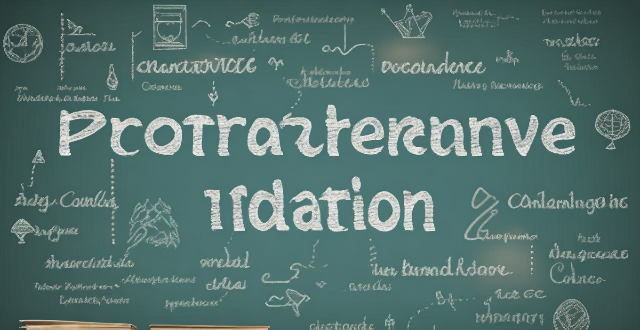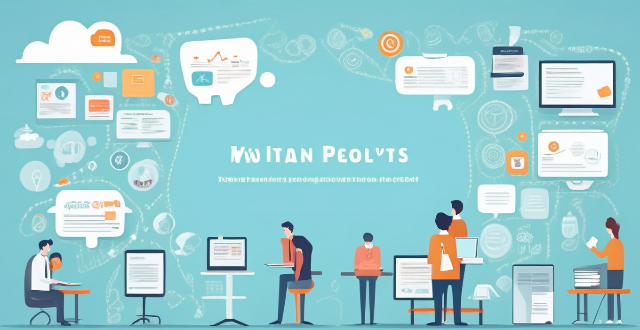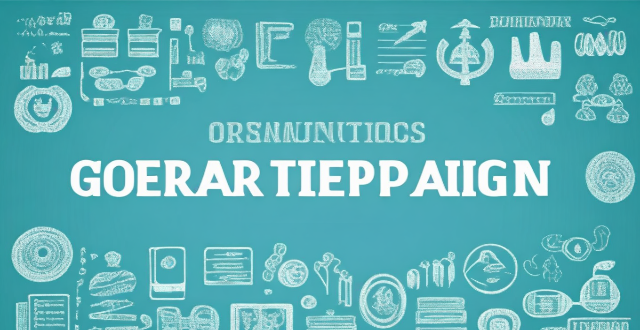Loan Group

How do I qualify for a mortgage loan ?
This article provides a detailed guide on how to qualify for a mortgage loan, highlighting key factors that lenders consider such as income, credit score, debt-to-income ratio, employment history, and assets and liabilities. It also outlines steps to take in order to increase chances of success including checking your credit score, calculating your DTI, gathering financial documents, shopping around for lenders, getting pre-approved for a loan, finding a home within budget range, making an offer, and completing the closing process.

How do I apply for a student loan ?
This text provides a comprehensive guide on how to apply for a student loan. It outlines nine steps, including determining needs, researching loan options, checking eligibility requirements, gathering documents, completing and submitting the application form, waiting for approval, signing promissory notes and loan agreements, and receiving disbursement of loan funds. The guide emphasizes the importance of understanding different loan options and their terms and conditions before applying. It also highlights the need to gather all necessary documents and provide accurate information in the application form. Overall, this text is an essential resource for students seeking financial assistance for their education.

What factors determine the amount of a student loan ?
The amount of a student loan is determined by several key factors, including eligibility criteria set by the lender, the cost of attendance at the chosen school, the student's financial need, and the type of loan (federal or private). Other influential factors include repayment options, school choice, and the availability of other financial aid. Students should consider all these elements and explore all possible funding options before taking out a loan.

How does defaulting on a student loan affect future borrowing ?
Defaulting on a student loan can severely impact your financial future, including your ability to borrow money. Here's what happens when you default and how it affects future borrowing: 1. **Consequences of Defaulting**: When you fail to make payments on your student loan for an extended period (typically 270 days), it's declared in default. The loan servicer then takes measures like wage garnishment, tax refund offset, and charging collection fees. Your credit score also takes a significant hit. 2. **Impact on Future Borrowing**: - **Difficulty Obtaining New Loans**: Lenders see you as a high-risk borrower, making it hard to get mortgages, car loans, or personal loans. - **Higher Interest Rates**: Even if approved, you face higher interest rates due to your damaged credit score. - **Limited Borrowing Options**: You may only qualify for secured or co-signed loans. - **Trouble Renting Property**: Some landlords check credit scores, and a defaulted loan can hinder your rental applications. - **Impact on Employment Opportunities**: While less common, some employers might check your credit report, affecting job prospects in industries where financial responsibility is crucial. 3. **Recovering from Default**: - **Rehabilitation Programs**: Many lenders offer these to help you make affordable payments over time, removing the default status. - **Consolidation Loans**: You can consolidate your defaulted loan into a new Direct Consolidation Loan through the federal government, making it easier to manage your debt. However, this doesn't remove the default status from your credit report. - **Paying Off the Debt**: If possible, paying off the loan in full removes the default status and improves your borrowing prospects. Negotiating a settlement with your lender or seeking assistance from a nonprofit credit counseling agency are other options.

How can I manage my student loan repayment after graduation ?
## Summary of Managing Student Loan Repayment After Graduation After graduation, managing student loan repayment can be a significant challenge. However, by following these steps, you can effectively manage your loans and avoid unnecessary fees or damage to your credit score: 1. **Understand Your Loan Terms**: Before starting any repayment plan, it's crucial to understand the terms of your student loans, including interest rates, monthly payments, and grace periods. 2. **Create a Budget**: A budget helps prioritize expenses and determine how much money can be allocated towards student loan repayment each month. Include all necessary expenses in your budget. 3. **Make Payments On Time**: Late payments can lead to fees and negatively impact your credit score. Set up automatic payments or make manual payments on time to avoid penalties. 4. **Consider Consolidation or Refinancing**: If you have multiple loans with different terms, consolidating them into one payment or refinancing at a lower rate may simplify repayment and save money. 5. **Explore Repayment Options**: Federal student loans offer various repayment plans, such as income-driven plans that adjust your payments based on your income and family size. Discuss the best plan with your loan servicer. 6. **Seek Help if Needed**: If struggling to make payments, don't hesitate to reach out for assistance. Many loan servicers offer forbearance or deferment options, and there are also government programs that can provide support for student loan repayment.

Are there any programs that help with student loan forgiveness or relief ?
There are several programs available to help with student loan forgiveness or relief, including Public Service Loan Forgiveness (PSLF), Income-Driven Repayment Plans (IDRs), Teacher Loan Forgiveness Program, Disability Discharge, Closed School Discharge, and Borrower Defense to Repayment. These programs vary by country and eligibility requirements, but they all aim to make student loan payments more affordable or forgivable based on certain criteria such as employment in public service, income level, teaching at a low-income school, disability status, school closure, or being misled or defrauded by a college or university. It's important to research each option thoroughly and determine which one best fits your individual circumstances and needs.

What should I consider when choosing a private vs federal student loan ?
When choosing between a private and federal student loan, consider interest rates, repayment options, forgiveness programs, eligibility requirements, and the application process. Federal loans usually have lower interest rates and more lenient eligibility requirements, while private loans may offer more flexibility in repayment options but typically have higher interest rates. Weigh these factors against your individual circumstances and financial goals to make an informed decision about which type of loan is best for you.

Is group study beneficial for exam preparation ?
Group study offers benefits for exam preparation, including knowledge sharing, motivation, improved comprehension, social skills development, stress relief, and better time management. Its success depends on factors like group dynamics and commitment levels.

What are some tips for leading a successful study group ?
Leading a successful study group requires careful planning, effective communication, and strong leadership skills. To achieve this, it is important to set clear objectives, organize meetings effectively, encourage active participation, foster collaboration and teamwork, and evaluate progress regularly. By following these tips, you can create a productive and enjoyable learning experience for all members of your study group.

How can I effectively communicate with my study group members ?
Effective communication is essential for the success of any study group. To communicate better with your study group members, set clear objectives, use active listening skills, encourage open discussion, provide constructive feedback, and stay organized. By following these tips, you can work together to achieve your academic goals.

What are the best strategies for organizing a study group ?
This text is a guide on organizing a study group, emphasizing the importance of clear goals, selecting compatible members, establishing rules, planning effective meetings, sharing resources, incorporating different learning styles, evaluating progress, maintaining motivation, leveraging technology, and having a backup plan. The strategies outlined aim to enhance academic performance and collaboration skills among group members.

What are the advantages and disadvantages of working in a study group ?
The advantages of working in a study group include improved learning outcomes, enhanced collaboration skills, motivation and accountability, and exposure to diverse perspectives. However, the disadvantages include time management challenges, unequal participation, lack of individual attention, and personality conflicts. To make the most of a study group, it is important to establish clear guidelines, set expectations for participation, and communicate openly with group members about any issues that arise.

How can I encourage active engagement in a study group ?
This article discusses strategies for encouraging active engagement in a study group, including setting clear goals and objectives, fostering a collaborative environment, assigning roles and responsibilities, providing opportunities for feedback and reflection, using technology to facilitate engagement, and offering incentives for participation. The author emphasizes the importance of active engagement for the success of a study group and encourages readers to make it a priority from the start.

How does a home equity loan work in relation to my mortgage ?
A home equity loan allows homeowners to borrow against the equity in their property, serving as a second mortgage without requiring refinancing. It offers advantages such as lower interest rates and potential tax deductions but also presents risks like foreclosure and additional debt. Understanding how it works in relation to your primary mortgage is crucial for making an informed financial decision.

Can I get a mortgage with bad credit ?
Getting a mortgage with bad credit is possible but may be more challenging and come with less favorable loan terms. To increase your chances, check your credit score, work on improving it, shop around for lenders, consider alternative options like FHA or VA loans, and be prepared to make a larger down payment.

What are the benefits of collaborating in a study group ?
**Benefits of Collaborating in a Study Group** Collaborating in a study group offers numerous benefits to students, including enhanced learning and understanding, improved academic performance, development of valuable skills, and emotional and social benefits. By participating in study groups, students can gain different perspectives, active participation, immediate feedback, better grades, increased retention, preparation for class discussions, communication skills, teamwork and collaboration, critical thinking, time management, reduced anxiety and stress, building friendships, increased motivation, and networking opportunities. Overall, collaborating in a study group is an excellent way to make the most out of your educational journey while building lasting relationships along the way.

What kind of group discounts are available at local restaurants ?
The article provides a comprehensive overview of the different group discounts that local restaurants offer to attract larger parties. These discounts include early bird specials, set menu options, bulk discounts, happy hour deals, birthday/special occasion deals, reservation-based discounts, loyalty programs, referral incentives, seasonal promotions, and split bill facilities. The article also offers tips for maximizing these discounts, such as planning ahead, asking about specials, negotiating, checking online, joining loyalty programs, combining offers, booking in advance, considering off-peak times, sharing the love, and being flexible. By utilizing these strategies, groups can enjoy memorable meals without breaking the bank.

What are the psychological benefits of group exercise for older adults ?
The article discusses the psychological benefits of group exercise for older adults, including increased social interaction, enhanced cognitive function, and increased motivation and accountability. It emphasizes how group exercise can reduce feelings of isolation and loneliness, improve mood and mental health, stimulate brain activity, delay the onset of cognitive decline, provide peer support and encouragement, and promote goal setting and achievement. Overall, it suggests that participating in group exercise activities can greatly enhance the overall well-being of older adults and contribute to a higher quality of life as they age.

How can I handle disagreements or differing opinions in a study group ?
In the text, the author provides a guide on how to handle disagreements in a study group. They suggest listening actively, staying calm and respectful, using "I" statements, finding common ground, compromising, taking breaks, and seeking mediation. The author emphasizes that handling disagreements requires patience, empathy, and effective communication skills. Overall, they argue that learning how to handle disagreements effectively can lead to stronger relationships and better outcomes.

How can I make the most out of group study sessions ?
Group study sessions can be an incredibly effective way to learn and review material. By pooling knowledge, sharing insights, and engaging in collaborative learning, students can deepen their understanding of complex topics and improve their academic performance. To make the most out of group study sessions, consider the following strategies: ## Setting Clear Objectives - **Establish Goals**: Before diving into a study session, it's important to set clear objectives. Decide what topics or areas you want to cover and what you hope to achieve by the end of the session. - **Create an Agenda**: Prepare a structured agenda that outlines the topics to be discussed and the time allocated for each. This helps keep the study session focused and productive. ## Preparation is Key - **Assign Pre-reading**: Encourage all group members to do some pre-reading or pre-work before the session. This ensures everyone comes prepared with basic knowledge and questions to discuss. - **Bring Materials**: Each participant should bring relevant textbooks, notes, or any other materials that could facilitate the discussion. ## Active Participation - **Engage Actively**: Encourage all members to actively participate by asking questions, sharing insights, and contributing to discussions. - **Take Turns Teaching**: Rotate the role of "teacher" among group members. Research shows that teaching a concept to others reinforces your own understanding. ## Promote Collaboration - **Share Different Perspectives**: Each member may have a unique approach or perspective on the material. Encourage sharing these viewpoints to enrich the discussion. - **Brainstorm Together**: When confronted with challenging problems or concepts, work together to brainstorm solutions. ## Stay Focused - **Minimize Distractions**: Try to minimize distractions during the study session. Put away phones, limit side conversations, and create an environment conducive to learning. - **Stick to the Agenda**: Keep the discussion on track by referring back to the agenda and managing the time spent on each topic. ## Review and Reinforce - **Recap Key Points**: At the end of the session, summarize the key points covered. This helps reinforce learning and provides a quick reference for future studying. - **Assign Follow-up Tasks**: Assign tasks or exercises to be completed before the next session. This keeps the momentum going and ensures continued engagement with the material. ## Evaluate and Reflect - **Reflect on the Process**: Take a few minutes at the end of the session to reflect on what worked well and what could be improved. This helps fine-tune future study sessions. - **Evaluate Learning Outcomes**: Consider assessing your understanding through quizzes or short tests after a series of study sessions to evaluate the effectiveness of the group learning process.

Is there a difference in mental health benefits between individual and group exercises ?
Exercise plays a vital role in maintaining good mental health, with both individual and group exercises offering unique benefits. Individual exercises provide flexibility, focus, and personal challenge, while group exercises offer social support, motivation, and accountability. Both types of exercise have been shown to reduce stress, anxiety, and depression while improving mood, self-esteem, and cognitive function. Ultimately, finding an activity that you enjoy and can consistently incorporate into your lifestyle is key to maintaining good mental health through exercise.

Is it necessary to stretch every muscle group after a workout ?
Stretching after a workout is often considered an essential part of any exercise routine. It helps in improving flexibility, reducing muscle soreness, and preventing injuries. However, the question remains: is it necessary to stretch every muscle group after a workout? Let's delve into this topic and explore the benefits and considerations associated with post-workout stretching.### Importance of Post-Workout Stretching Improved Flexibility Stretching after a workout can help maintain and improve flexibility over time. When muscles are warmed up from the exercise, they become more pliable, making it easier to stretch them. Regular stretching can lead to increased range of motion and better overall flexibility. Reduced Muscle Soreness Stretching can help reduce muscle soreness that may occur after a strenuous workout. By elongating the muscles, stretching promotes blood flow, which aids in the removal of lactic acid and other waste products that contribute to muscle soreness. Injury Prevention Stretching can also play a role in injury prevention. By increasing flexibility and range of motion, stretching can help reduce the risk of strains, sprains, and other injuries that may occur during physical activity.### Considerations for Post-Workout Stretching Not All Muscles Need to Be Stretched While stretching is generally beneficial, it's not necessary to stretch every muscle group after every workout. The focus should be on the muscles that were primarily engaged during the exercise session. For example, if you completed a lower body workout, it would be more beneficial to stretch your legs rather than your arms. Quality Over Quantity It's important to prioritize the quality of your stretches over the quantity. Performing a few well-executed stretches is more effective than rushing through multiple stretches without proper form or technique. Take the time to hold each stretch for at least 15-30 seconds, ensuring that you feel a gentle stretch without any pain or discomfort. Listen to Your Body Your body will provide clues about which muscles need stretching. If you experience tightness or stiffness in a particular muscle group, it's a good idea to focus on stretching those areas. Conversely, if a muscle group feels loose and relaxed, there may be no need to stretch it extensively.### Conclusion In conclusion, while stretching every muscle group after a workout is not strictly necessary, incorporating stretching into your post-workout routine can offer numerous benefits. By focusing on the muscles that were heavily engaged during your exercise session and prioritizing quality over quantity, you can improve flexibility, reduce muscle soreness, and potentially prevent injuries. Remember to listen to your body and adjust your stretching routine accordingly for optimal results.

What are the pros and cons of taking out a student loan ?
Student loans can help students afford college, but also come with long-term debt and limited job opportunities.

Can you consolidate multiple student loans into one payment ?
Consolidating multiple student loans into one payment simplifies monthly expenses and can reduce overall interest rates. The process involves taking out a new loan to pay off existing ones, resulting in a single fixed interest rate and monthly payment. Benefits include lower monthly payments and easier management, but potential drawbacks such as longer repayment periods and loss of lender benefits should be considered. Successful consolidation requires evaluating current loans, comparing offers, and understanding all terms before committing.

How can I ensure equal participation from all members in a study group ?
Ensuring equal participation in a study group is crucial for its success. Here's a summary of strategies to encourage active involvement from all members: 1. **Set Clear Expectations**: Establish guidelines for attendance, engagement, and task completion at the start. 2. **Assign Roles and Responsibilities**: Give each member a specific job to ensure they have an active role. 3. **Encourage Open Communication**: Create a safe space where everyone can share their thoughts without interruptions. 4. **Use Icebreakers and Group Activities**: These help build rapport and encourage shy members to participate. 5. **Provide Feedback and Recognition**: Regularly acknowledge contributions and offer constructive feedback to foster improvement. By implementing these strategies, you can create an inclusive environment that values each member's input, ensuring a productive and enriching study group experience for all.

Can team sports or group exercises provide additional cognitive benefits compared to individual activities ?
Team sports and group exercises provide cognitive benefits such as improved social skills, enhanced cognitive functioning, increased self-esteem and confidence, and personal growth opportunities. Participating in these activities helps individuals develop strong communication skills, cooperation, conflict resolution abilities, attention and focus, decision making skills, memory retention, and a sense of achievement. These skills can be applied in all aspects of life, leading to personal growth and development.

What is private mortgage insurance (PMI) and do I need it ?
Private Mortgage Insurance (PMI) is a type of insurance that protects the lender, not the borrower, in case of default on a mortgage loan. It is typically required when a homebuyer makes a down payment of less than 20% of the home's purchase price. Whether you need PMI depends on factors such as your down payment, credit score, loan-to-value ratio, and type of loan. Consider the cost of PMI and alternatives before deciding to obtain it.

How does a co-signer affect my mortgage application ?
A co-signer is a person who signs a loan application along with the primary borrower. The co-signer agrees to take on the responsibility of repaying the loan if the primary borrower fails to do so. In this article, we will discuss how a co-signer affects your mortgage application. The credit score of both the primary borrower and the co-signer plays a significant role in determining the eligibility for a mortgage loan. A co-signer with a good credit score can improve the chances of getting approved for a mortgage loan. However, if the co-signer has a poor credit score, it may negatively impact the loan approval process. The income and debt-to-income ratio (DTI) of both the primary borrower and the co-signer are also important factors that lenders consider when evaluating a mortgage application. If the co-signer has a high income and low DTI, it can help strengthen the application and increase the chances of approval. On the other hand, if the co-signer has a low income or high DTI, it may negatively impact the loan approval process. Lenders also consider the employment history of both the primary borrower and the co-signer when evaluating a mortgage application. A stable employment history can demonstrate financial stability and reliability, which can positively impact the loan approval process. If the co-signer has a stable employment history, it can help strengthen the application and increase the chances of approval. The assets and liabilities of both the primary borrower and the co-signer are also taken into consideration by lenders when evaluating a mortgage application. If the co-signer has significant assets and few liabilities, it can help strengthen the application and increase the chances of approval. However, if the co-signer has significant liabilities or limited assets, it may negatively impact the loan approval process. In conclusion, a co-signer can have a significant impact on your mortgage application. Their credit score, income and DTI, employment history, assets, and liabilities are all factors that lenders consider when evaluating a mortgage application. It is important to choose a co-signer who has a good credit score, stable employment history, and low DTI to increase the chances of getting approved for a mortgage loan.